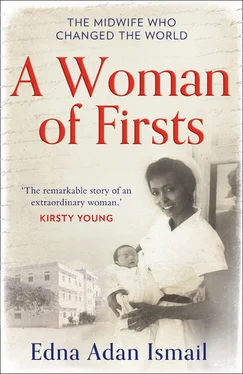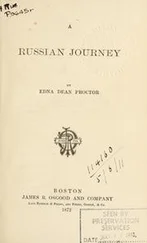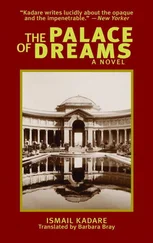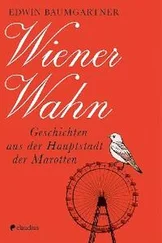Oxford Street was like El Dorado to us; we were so amazed by how beautiful and shiny and silky all the clothes were. We blew almost all that was left of our allowance on impractical blouses and silly frilly things that were completely inappropriate. The only scary part of our big day out was taking the Tube. I’d seen trains before in Djibouti but I’d never actually been on one. I didn’t know that they could go underground, and that frightened the life out of me, for fear that the roof might collapse or there’d be a flood. To this day, I take the bus rather than the Tube.
Within a few days, I had run out of cash and couldn’t afford the train or the bus but I knew I couldn’t ask the Rodgers for money. Jessica had an aunt in Cardiff who helped her out, but I had no one, so I went to a post office and sent a telegram to my father.
‘ Dear Dad. STOP. Urgently need money for bus fares. STOP. Please send money. STOP. Shukri .’
The reply came back surprisingly quickly:
‘ Don’t waste your money sending telegrams. STOP. Make do with what is given to you. STOP .’
I was so angry with him then. He was a rich man by Somali standards. He was building his own house – as the first Somalilander who’d been allowed to purchase a plot of land in the exclusive European residential area. Yet he was refusing to even send me as much as the sixpenny bus fare to tide me over. I now know that this was exactly the right thing for him to have done and – thanks to Adan Ismail – I have always lived within my means. Embarrassingly, though, I had to borrow money and walk instead of catching the bus until my next month’s allowance arrived. That’s when I started saving – the best lesson I ever learned from my father.
Because I was not yet eighteen, I couldn’t enrol in a nursing programme immediately even if I’d been ready for it, which I wasn’t. My scholarship provided for two years of preparatory study that enabled me to complete my secondary schooling and a pre-nursing programme at the Borough Polytechnic in Elephant & Castle, south London. Jessica and I started together at the ‘poly’ where I was the only black girl in the class (being of mixed race, she was much fairer skinned than I was).
Despite standing out physically, I didn’t feel different and quickly made friends. I was popular with the teachers and loved my studies, apart from domestic science in which we had to make hot cross buns and a Sunday roast – things I would never make in Somaliland. If only they’d asked me to make rice custard! As in Djibouti, my biggest challenge was the language. Jessica spoke English far better than I did because she’d done all her basic schooling in it, but once I grasped the language I was away.
There were so few coloured students that I was in demand as a model for the art students to practise pigmentation and skin tones. One of the teachers there also taught in a studio in St John’s Wood and paid me £1 per session plus my bus fare to go there one night a week. The students only ever painted my hands, learning how to mix the colours to achieve my particular shade of brown. It may have been unusual for the times, but I don’t honestly remember encountering any racism in London. I was more of a curiosity than a threat, like the time I was on the bus and a mother and her young son sat opposite me. The child couldn’t take his eyes off my Afro hair and finally asked his mother, ‘Can I have a golliwog doll for Christmas?’ I didn’t say anything but the woman was clearly embarrassed, even more so when I made some response to the ticket collector and the child piped up, ‘And can I have one who talks like that?’ Seeing the mother’s horror, I just smiled and said, ‘And I sing too!’ as his eyes came out on stalks. I think that put us all at ease.
Later when I was nursing, old ladies seemed especially fascinated by me, but were still always polite. They’d rub my hand with their white sheets to see if the colour came off, or ask questions about life in Africa. One pensioner thanked me for helping her with something before asking, ‘Tell me dear, do you people have houses in Africa?’ I masked my surprise and told her that, yes, we did. It was a question I was asked very often, and I eventually came up with an answer that tended to prevent further enquiries: ‘Why would we have houses when we have trees to hang from?’ Perhaps the strangest question of all was, ‘Is it true that Africans have a tail?’ I was so taken aback that I replied, ‘Yes, but I had mine cut off.’ Seeing a Nigerian nurse working on the other side of the ward, I suggested, ‘Why don’t you ask if she still has hers?’
Aside from the Rodgers family, Jessica and I were also under the benign supervision of a guardian from the Colonial Office, Colonel William Vernon Crook, who’d recently retired from his position as Director of the Department for East Africa and Aden affairs. The colonel, who had a daughter our age and an unmarried sister called Mouse, took Jessica and me under his wing. He had a cottage on the Thames where he kept a boat, so he and his family would take us on cruises up the river and to Kew Gardens to see the tropical plants. He introduced us to horticulture and took us to the Chelsea Flower Show, an annual event attended by the Queen that we’d never otherwise have known about or made time for. I don’t know if the colonel’s prize-winning roses ever made it to Chelsea, but that kind old man with the handlebar moustache gave me a lifelong love of growing plants.
Around this time, I found myself some part-time work reporting on life in the UK for the BBC, which had a relay station in Berbera that broadcast a daily Somali programme of news and events across East Africa. The ‘Beeb’ constantly required new material and would store future fillers, it’s not like milk that can go bad. Somebody at a party asked me if I’d like to contribute, as they wanted female voices for a female audience. I told them I didn’t know how but they sent me to a woman who taught me how to speak slowly into a microphone, take the right number of breaths and never rustle my papers. An engineer and an editor guided me and my reviews about British cultural events were never live so they could always edit out my many mistakes.
To my delight, I was given tickets for the Ideal Home exhibition at Olympia, the ballet at Sadler’s Wells, and concerts at the Royal Festival Hall, reporting on them to my people. I also provided the female voices for some of their regular entertainment programmes such as 1001 Nights . One of my fellow reviewers was a Somali Army cadet called Abdullahi Said Abby, a charming young man who was training in London and who I frequently bumped into at receptions. The BBC paid me five guineas if I was working from a script written for me, and extra if I wrote the script myself. That was a lot of money for a student in those days. If I recorded two or three programmes at once, I’d take home fifteen guineas when a student nurse would only earn eight guineas a month. Working for the BBC helped pay for driving lessons (something I wouldn’t have been allowed to do back home), and enabled me go on holidays to Amsterdam, Paris and the Austrian Tyrol with friends.
The biggest thrill about my work for the BBC was that my father heard me on the radio, and wrote immediately to express his surprise and pride. ‘How do you find the time in between your studies?’ he asked. My mother, who only ever signed the bottom of his many letters to me with, ‘ Love from Mum ’, didn’t make any comment.
***
The departments and classes at Borough Polytechnic were enormous and I had to adjust to being surrounded by hundreds of teenagers also studying for their O levels in everything from pre-dentistry or pre-medicine to engineering and catering. Those two years were a great experience and forced me to develop better study habits. During my time there I prepared for the state preliminary examination for nursing and also did the equivalent of the first term of Nursing School. This exempted me from one semester of the nursing programme once I was admitted.
Читать дальше












